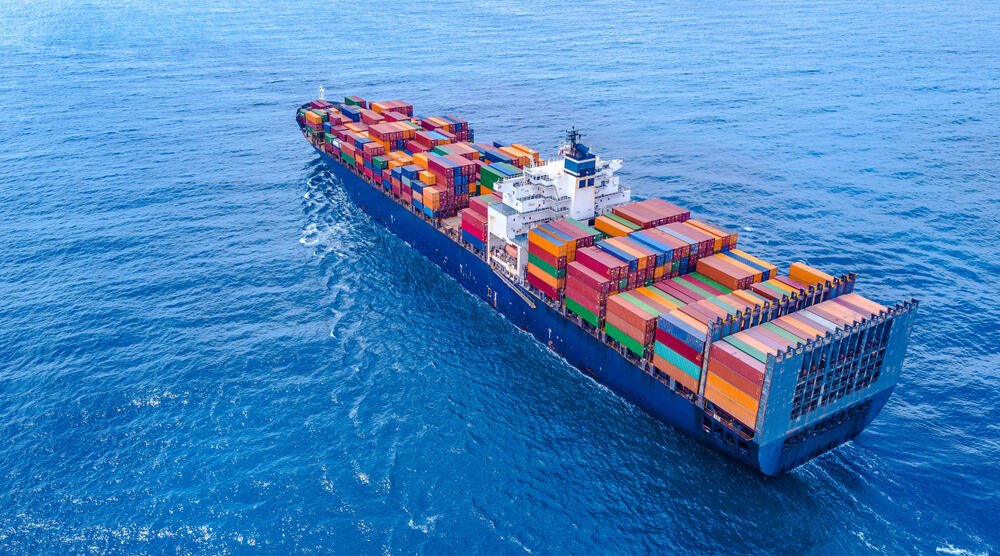
Freight shipping is an already complicated business. But when determining who pays for the shipping fees, the complication doubles.
Have you ever wondered who pays for freight shipping? Well, you're not alone. Many individuals and businesses still struggle to understand the intricacies of freight payment and who bears the burden of these expenses.
By the end of this article, you will clearly understand the factors influencing freight payment and have the knowledge to navigate the complex world of freight shipping expenses.
So, let's dive in and answer the question: who pays for freight shipping?

Who Pays Freight Charges for a Shipment
The cost of shipping goods is a central part of a successful business transaction. It must be taken into account by both parties, so understanding who pays for the freight charges is vital to achieving desired outcomes.
Typically, freight charges are split between the sender and recipient depending on specific conditions, such as the terms of sale and transportation requirements.
When it comes to international shipping, ocean-related charges such as port fees, insurance premiums, and vessel usage can all impact overall costs. Depending on the details agreed upon, either the shipper or consignee may be required to pay all or some portion of these fees.
Other landside costs, such as haulage fees or accessories like customs clearance, could also affect pricing, and who pays these fees will depend on contractual agreements.
Finally, other factors like ocean freight rate calculations should also be considered before determining who supplies the payments necessary for completing a successful shipment.
What Is FOB Shipping?
FOB shipping is a selling arrangement in which the buyer takes ownership and responsibility for purchased goods at the point of shipment.
Once the goods are placed on the delivery vehicle or at the dock, they become liable for any losses or damage that occur after. The buyer would then record the sale and consider their inventory increased. In addition to goods costs, buyers may be responsible for shipping costs and any damages during shipping.
For example, US Company A signs a FOB shipping point agreement when purchasing watches from Vietnam.
This means that from when it arrives at the transportation site till it reaches its destination, Company A will hold full responsibility and ownership of the products within this period. As such, this company will be liable to file a claim for damages if needed during shipment.
The Fine Print of FOB Shipping and Destination
FOB shipping point, or FOB destination, are terms that can confuse businesses dealing with global freight shipping.
Understanding the differences between these two concepts is vital, as they determine who should bear responsibility for any goods that incur damages or losses during transit.
The party is responsible for paying the freight charges and other associated fees, depending on whether your contracts say FOB Shipping Point or FOB Destination.
At its most basic, free on board, or FOB, is a term used in international shipments that determines who pays for incurred shipping costs and "owns" the goods while in transit.
When a purchase contract uses the term "FOB Shipping Point," it implies that costs and risks of transportation shift to the buyer once they (or their agent) take delivery of goods from the seller at the place of shipment specified in the contract.
On the other hand, using the FOB Destination clause means the seller pays freight costs until the buyer gets their delivery at the specified location per the contract agreement. In such cases, the risk of loss also transfers to the buyer when they make a receipt of goods.

Why Is It Important to Understand the Difference?
Understanding and recognizing the difference between various shipping terms is important because of the magnitude of global shipping operations.
Shipping terms like FOB Origin, FOB Destination, CIF, CPT, etc., dictate many aspects of a shipment—from who bears the liability and risk to how cost components may be reported on financial statements.
This holds especially true due to the diversity of languages spoken around the world; having agreed-upon shipping terms makes communication among parties easier, faster, and more efficient.
Furthermore, understanding shipping terms is essential for saving money. Knowing what obligations a company takes on by choosing certain terms can be used strategically to ensure proper budgeting for inventory costs at different times, along with associated freight charges.
Delays in recognizing these expenses can be detrimental from an accounting or financial perspective as they affect a business's net income.
Moreover, miscommunication (due to language barriers or even misunderstandings) can cause unexpected additional costs and expenses that businesses are not adequately prepared for financially.
Therefore having an agreed-upon definition for each shipping term is highly advantageous when it comes to finances and accounting numbers.
Freight Prepaid vs. Freight Collect: What's The Difference?
Freight prepaid and freight collect are two terms used in the transportation industry that can be confusing to those new to the world of shipping. Understanding these two terms' differences is non-negotiable because problems can easily occur if something is miscommunicated or misunderstood.
Freight collect
Freight collect is a term used in logistics to indicate that the receiver or consignee is responsible for paying for the transportation of goods. This type of arrangement may be common for customers who need their freight to be sent quickly without waiting on payment first.
Freight collection is also referred to as "collect upon delivery." It typically involves the consignee covering all types of transportation fees, including any additional or supporting costs depending on the agreed-upon transport method.
"Freight collect" can provide a streamlined option for customers as it reduces unnecessary delays in deliveries while allowing them more control over freight shipping payments and charges.
For those uncertain about "freight collect," there are other forms of payment available such as "cash on delivery" (COD) or third-party payment in which someone other than both the shipper and receiver can pay for transportation services.
Whenever freight shipping is involved, understanding "freight collect" can mean finding an efficient solution by entrusting the payment responsibility to the recipient.
Freight prepaid
Freight prepaid is a phrase commonly used by shippers and carriers referring to the responsible party of all charges associated with a shipment's transport.
When "freight prepaid" appears on a shipping agreement, the shipper is responsible for each fee, including the freight bill and any additional fees accrued during transit.
These fees are generally added and presented as one collective cost, simplifying billing, tracking, and payment processes for both parties. "Prepaid and add" also has an identical meaning to "freight prepaid," though these terms may be interchanged depending on the business's preference.
Under the "freight prepaid" agreement, shippers are incentivized to provide quality services while keeping prices low. Frequently, turnaround time is prioritized as customers expect their shipments to arrive quickly without issues arising en route.
Rates must remain competitive to stay ahead in a highly saturated market alongside other rival businesses. Carriers often handle reporting and keep records of all transactions completed under this vehicle of exchange, which can come in handy if an audit or investigation arises at a later date.
What Other Freight Payment Terms Should You Know?
Freight payment terms are important to be aware of when shipping items, as it provides guidelines concerning who is responsible for the cost and when the payment will take place. Typically freight payments revolve around two main terms known as "prepaid" and "collect."
However, other freight payment terms may need to be understood as well, depending on a particular situation that you may encounter.
One such term is cash against documents (CAD). This term is used when goods are shipped FOB and would allow the buyer of the goods or services to receive ownership upon payment before delivery.
Essentially, once the seller offers proof of shipment in the form of documents, the buyer may pay directly after due inspection for quality assurance purposes.
Another freight payment term is Third Party Payments (TPP) which includes factoring, where a third party collects on behalf of a company once an invoice has been created and issued at an earlier date than normal due dates.
These types of payments free up cash flow for companies by allowing them to access funds sooner than they normally would without it. In addition, letter of credit (LOC) transactions are a very common form of obtaining guarantees of international payments between buyers and sellers during international trade.

Conclusion
Whether you're a business owner or an individual, it's worthwhile to understand who pays for freight shipping. It's important to factor in these costs when planning your budget and making shipping arrangements.
Knowledge is power—knowing who bears the responsibility, you can make informed decisions that benefit your bottom line and peace of mind.
If you need assistance with freight shipment, A-1 Auto Transport can help. We deliver your automobiles and other cargo wherever you need them around the country and the world. Browse our services and get an instant shipping cost estimate.






 Share on Facebook
Share on Facebook Share on LinkedIn
Share on LinkedIn Share on Twitter
Share on Twitter




 Google
Google  Instagram
Instagram  Trustpilot
Trustpilot 



